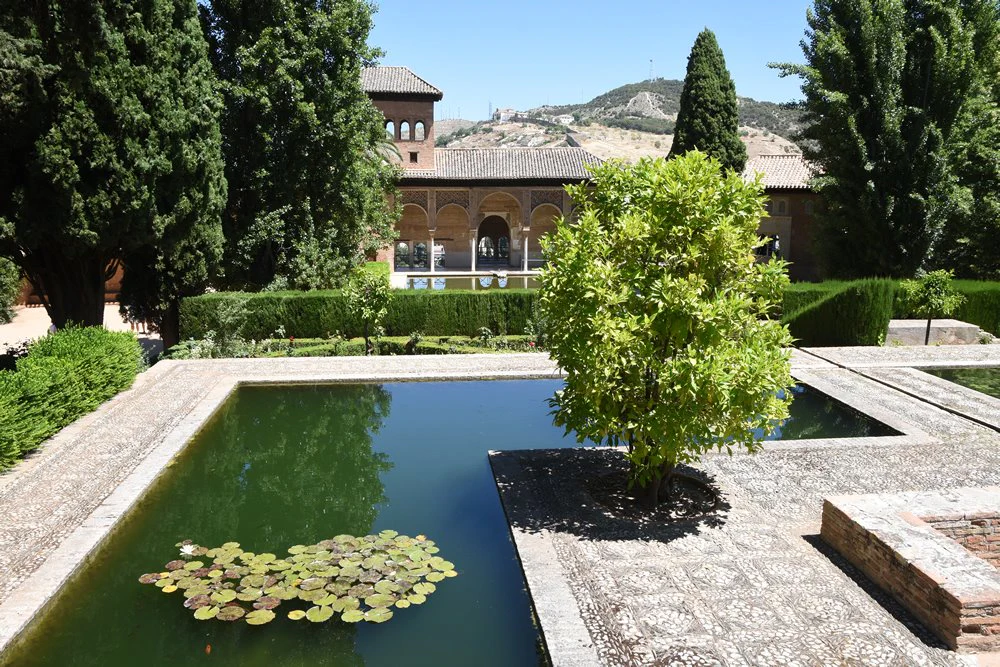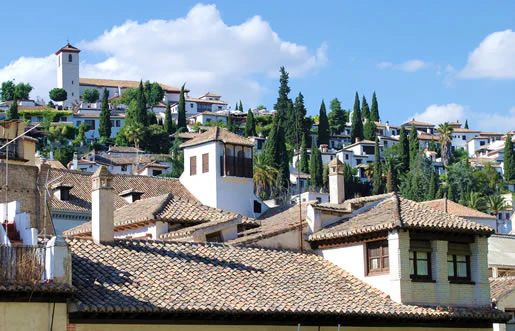Upper Alhambra
The Unirrigated Land of the Alhambra (Secano de la Alhambra) is located between the Tower of the Princesses (Torre de las Infantas), the Tower of the Captive (Torre de la Cautiva) and the Tower of the Seven Floors (Torre de los Siete Suelos). In the Unirrigated Land many ruins from Arab and Christian buildings are still left and it received this name because in the 16th century the irrigation channels that took water to the irrigated land of that area were destroyed. The southeastern area of the complex is called the Upper Alhambra (Alhambra Alta) and it comprises the Unirrigated Land and the area between it and the Garden of the Partal (Jardines del Partal) and the Wine Gate (Puerta del Vino). Charles V Palace (Palacio de Carlos V) now occupies part of that space.
The Upper Alhambra (Alhambra Alta) or village of the Alhambra («Madinat al Hamra») was higher than the palaces, from which it was separated by a moat, a part of which is preserved between the Rauda and the Patio of the Lions (Patio de los Leones).
During the Arab period a little city was set up here, with the dwelling of the highest-ranking officials of the Court, religious and administrative centres and several small palaces and gardens. Once Granada was conquered, its inhabitants had to abandon it and had to move to the lower city. The buildings were therefore destroyed or rebuilt, which is the reason why little is nowadays left of them). Some of the most important buildings of the area are the Former Saint Francis Convent (ex-Convento de San Francisco), which was an Arab palace until it was turned into a convent due to a promise the Catholic Monarchs made to Saint Francis of Asis, and Tendilla's Palace (Palacio de Tendilla).
Read more about...



